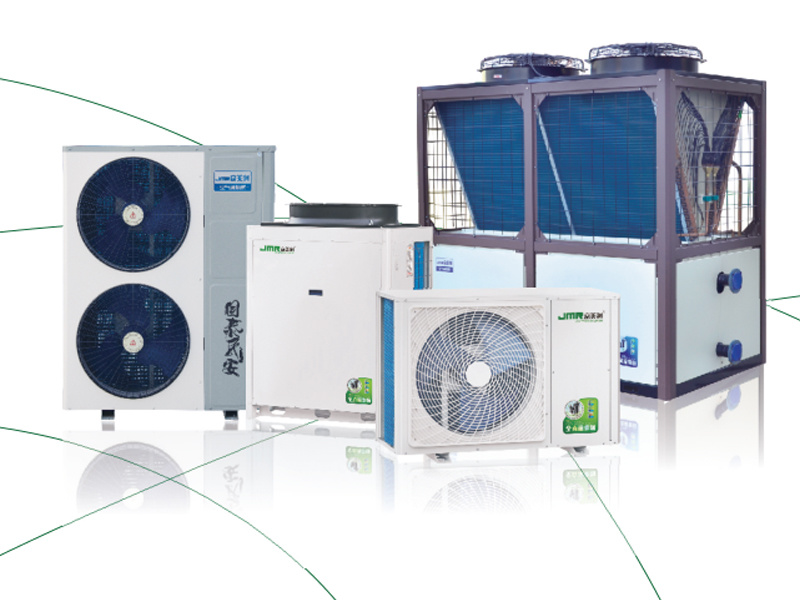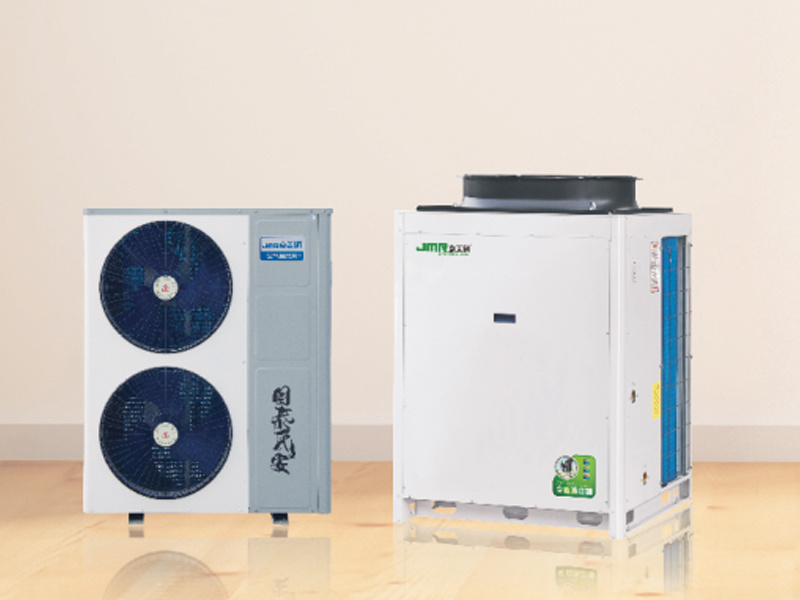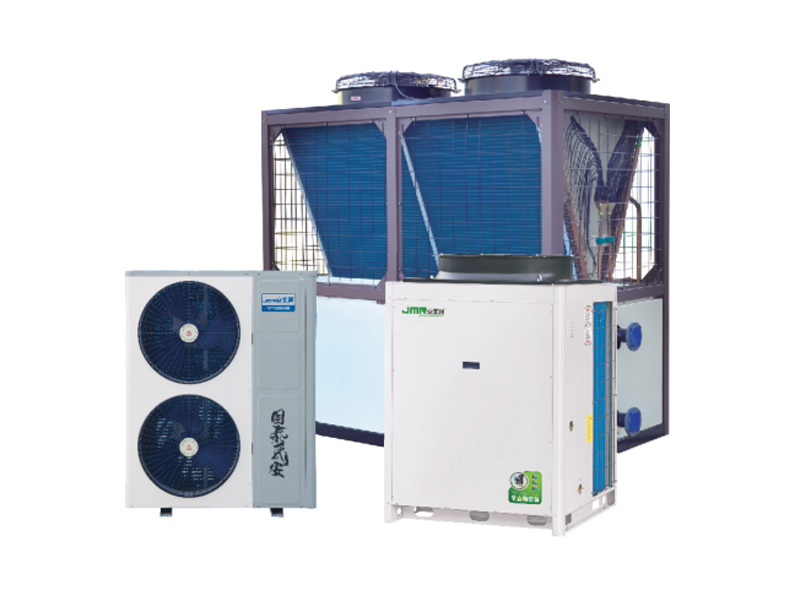Why More Homeowners Are Choosing Low Ambient Heat Pumps for Efficient Heating
Release Time:
Jun 26,2025
Why More Homeowners Are Choosing Low Ambient Heat Pumps for Efficient Heating Understanding Low Ambient Heat Pumps Low ambient heat pumps are an innovative technology designed to efficiently heat homes, even in colder climates. Unlike traditional heating systems that rely on combustion fuels, these units extract heat from the outdoors, regardless of the external temperature. As homeowners become i
Why More Homeowners Are Choosing Low Ambient Heat Pumps for Efficient Heating
Understanding Low Ambient Heat Pumps
Low ambient heat pumps are an innovative technology designed to efficiently heat homes, even in colder climates. Unlike traditional heating systems that rely on combustion fuels, these units extract heat from the outdoors, regardless of the external temperature. As homeowners become increasingly aware of energy efficiency and environmental sustainability, the popularity of low ambient heat pumps is surging.
The Rise of Energy Efficiency Awareness
In recent years, there has been a significant shift in consumer behavior towards energy-efficient appliances. Homeowners are not just looking for comfort; they are also conscious of their carbon footprint and the impact of their energy consumption on the environment. This growing awareness is a driving force behind the adoption of low ambient heat pumps.
Benefits of Energy Efficiency
By utilizing low ambient heat pumps, homeowners can expect a multitude of benefits:
- **Lower Energy Bills**: These systems can reduce heating costs significantly, leading to substantial savings over time.
- **Sustainability**: Low ambient heat pumps draw heat from the environment, which can lower reliance on fossil fuels.
- **Increased Home Value**: Energy-efficient homes often have higher market values, making them more attractive to potential buyers.
How Low Ambient Heat Pumps Work
Low ambient heat pumps operate on the principle of thermodynamics. They absorb heat from the air (even in low temperatures) and transfer it indoors to warm the space.
The Mechanism Explained
1. **Heat Absorption**: The outdoor unit contains refrigerant that absorbs ambient heat.
2. **Compression**: The refrigerant is compressed, increasing its temperature.
3. **Heat Transfer**: The hot refrigerant flows through coils in the indoor unit, releasing heat into the home.
4. **Repeat Cycle**: The refrigerant cools down and returns to the outdoor unit to repeat the cycle.
Adaptability to Varied Climates
One of the most compelling features of low ambient heat pumps is their ability to perform efficiently in a variety of climates. They can extract heat from the air even when temperatures drop below freezing, making them ideal for regions with harsh winters.
Cost Savings: Upfront and Long-Term
While the initial investment for a low ambient heat pump can be higher than conventional heating systems, the long-term savings are substantial.
Upfront Costs vs. Long-Term Investments
- **Installation Costs**: The installation of a low ambient heat pump can range from $3,500 to $8,000, depending on the system and installation complexity.
- **Operating Costs**: Compared to traditional heating systems, these pumps can reduce energy bills by up to 50% during the winter months.
Incentives and Rebates
Many governments offer financial incentives for homeowners to install energy-efficient heat pumps, further reducing the overall cost. Tax credits, rebates, and financing options make the transition to low ambient heat pumps more feasible for many.
Environmental Impact: A Sustainable Choice
The adoption of low ambient heat pumps contributes to a reduction in greenhouse gas emissions. They use significantly less energy than fossil fuel heating systems, leading to lower carbon footprints.
Supporting Renewable Energy Goals
By choosing low ambient heat pumps, homeowners align themselves with global efforts to promote renewable energy. These systems can be integrated with solar panels, enhancing the use of clean energy for heating.
Reducing Dependence on Fossil Fuels
As more homeowners transition to low ambient heat pumps, the demand for fossil fuels decreases, contributing to energy independence and a more sustainable future.
Comparing Low Ambient Heat Pumps to Traditional Heating Systems
Understanding the differences between low ambient heat pumps and traditional heating systems can help homeowners make informed decisions.
Efficiency Ratings
- **AFUE Ratings**: Traditional systems often have Annual Fuel Utilization Efficiency (AFUE) ratings ranging from 80% to 98%. Low ambient heat pumps, on the other hand, can achieve efficiency ratings over 300%, as they move heat rather than generate it.
Maintenance and Longevity
Low ambient heat pumps generally require less maintenance than traditional systems. With fewer moving parts and no combustion process, the likelihood of breakdowns and repairs is minimized.
Quiet Operation
Homeowners appreciate the quiet operation of low ambient heat pumps. Unlike some traditional heating systems that can be noisy, these pumps operate quietly, enhancing overall comfort.
Expert Insights: What HVAC Professionals Say
Industry experts advocate for the benefits of low ambient heat pumps. HVAC professionals highlight the importance of proper installation to maximize efficiency and effectiveness.
Installation Considerations
Choosing a certified professional for installation is crucial. Proper sizing and placement of the heat pump ensure optimal performance, especially in challenging climates.
Future Trends in HVAC Technology
As technology advances, low ambient heat pumps will likely become even more efficient. Innovations in refrigerants and controls will enhance their performance and expand their applicability.
Frequently Asked Questions (FAQs)
1. What temperature can low ambient heat pumps operate in?
Low ambient heat pumps can operate efficiently in temperatures as low as -15°F to -20°F, depending on the model.
2. Do low ambient heat pumps work as air conditioners in the summer?
Yes, many low ambient heat pumps are designed to provide both heating and cooling, making them versatile year-round solutions.
3. Are there any downsides to low ambient heat pumps?
Some homeowners may find that initial installation costs are higher than traditional systems, but long-term savings often outweigh this initial expense.
4. How do I choose the right low ambient heat pump for my home?
Consult with a qualified HVAC professional who can assess your home's size, insulation, and heating needs to recommend the best model.
5. What maintenance is required for low ambient heat pumps?
Regular maintenance includes cleaning or replacing filters, checking refrigerant levels, and ensuring that the outdoor unit is free from debris.
Conclusion
In summary, the increasing trend of homeowners choosing low ambient heat pumps for efficient heating is fueled by a combination of energy savings, environmental considerations, and technological advancements. As we continue to prioritize sustainability and efficiency in our homes, low ambient heat pumps emerge as a superior choice for modern heating solutions. With their ability to operate efficiently in various climates and their potential for significant cost savings, these systems are not only a smart investment for homeowners but also a step towards a more sustainable future.
By embracing this innovative technology, homeowners are not just enhancing their comfort; they are also contributing to a larger movement towards energy efficiency and environmental stewardship.
Key words:
What Else Might You Learn?






